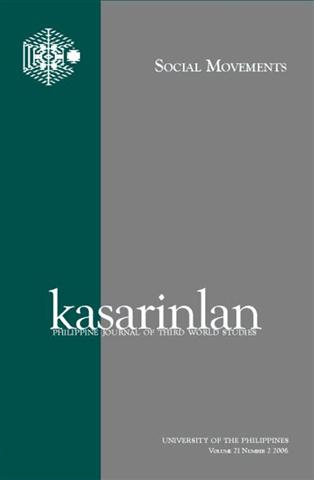The Theology of Struggle: Recognizing Its Place in Recent Philippine History
Abstract
The “theology of struggle” is the name embraced in 1982 by a significant group of socially concerned Christians in the Philippines who, after experiencing conversion as a result of living and working among the poor, committed themselves toa new way of “being church.” For almost three decades, this new way of life saw church people construct new identities, act collectively, and challenge established religious, social, and cultural understandings. Those who joined the struggle felt that they were called to a radical form of commitment. This commitment brought them under the leadership of the Communist Party of the Philippines, a group with an ideology perceived as antithetical to their beliefs. The “theology of struggle” is, however, a misnomer: it is not theological discourse in the traditional sense. Rather, it should be understood as a social movement. Multifaceted and complex, social movements strive for change, though often in dangerous circumstances. To comprehend how Christians in the Philippines came to join a Communist-led struggle, and their subsequent evolution into
a movement of significance, one dimension of social movement theory is employed—the construction of identity.
Published
2007-11-14
How to Cite
HARRIS, Anne.
The Theology of Struggle: Recognizing Its Place in Recent Philippine History.
Kasarinlan: Philippine Journal of Third World Studies, [S.l.], v. 21, n. 2, p. 83-107, nov. 2007.
ISSN 2012-080X.
Available at: <https://journals.upd.edu.ph/index.php/kasarinlan/article/view/403>. Date accessed: 24 sep. 2025.
Section
Articles
Keywords
Christian; Communist; identity; struggle; movement; CNL
By submitting a manuscript, the authors agree that the exclusive rights to reproduce and distribute the article have been given to the Third World Studies Center.



